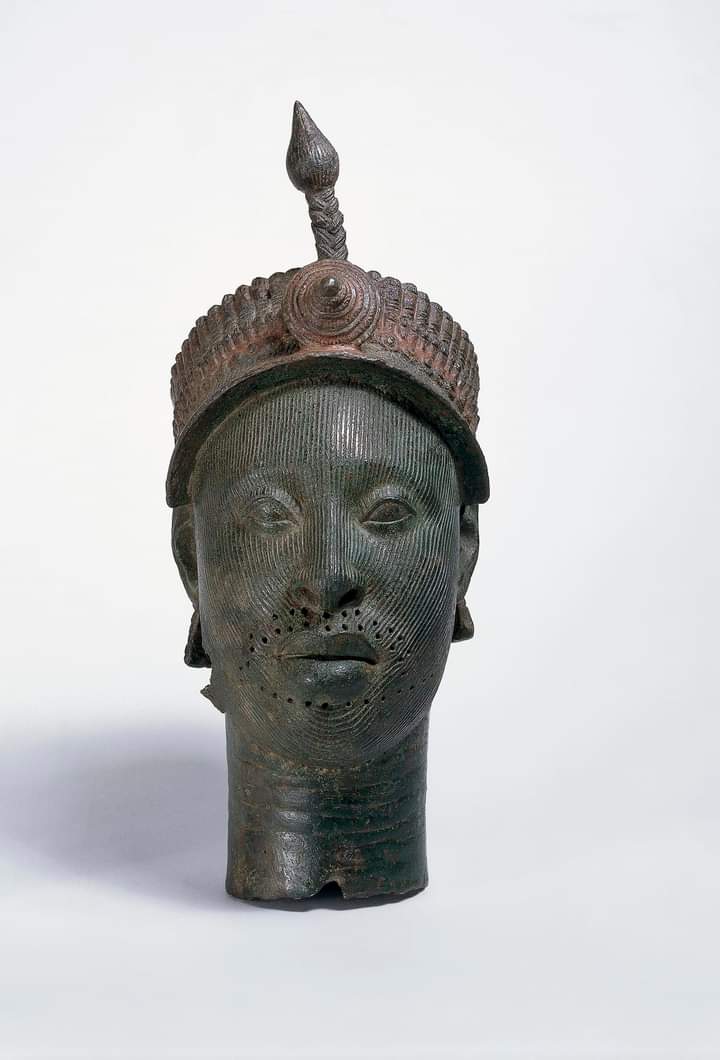Blockchain-Based Micro-Investment Platforms
In recent years, blockchain technology has opened up a world of new opportunities. One of the most promising innovations it has brought is micro-investment platforms. These platforms are revolutionizing how people, especially those in lower-income groups, can access investment opportunities.
In Nigeria, a country where a significant portion of the population struggles with financial inclusion, blockchain-based micro-investment platforms offer a unique solution.
This article explores how blockchain is changing the landscape of micro-investment opportunities, particularly for lower-income Nigerians, and how these platforms work to empower them financially.
Understanding Blockchain and Micro-Investment
Before diving deep into how blockchain-based micro-investment platforms transform the investment landscape, let’s first understand the basics.
What is Blockchain?
 What is Blockchain?
What is Blockchain?Blockchain is a decentralized, digital ledger that records transactions across multiple computers. This technology ensures transparency, security, and immutability, making it ideal for financial transactions. Blockchain’s decentralized nature removes the need for intermediaries, such as banks, which is a key advantage, especially in regions where traditional financial services are inaccessible or expensive.
What is Micro-Investing?
Micro-investing involves small-scale investments, often starting with just a few dollars or their equivalent. This makes investing accessible to individuals who may not have large sums of money to invest. With micro-investment platforms, users can gradually build their wealth over time by investing in various financial products, including stocks, cryptocurrency, real estate, and more.
Blockchain-based micro-investment platforms combine these two concepts to create a low-cost, efficient, and transparent way for people to invest in minimal amounts.
How Blockchain Technology Powers Micro-Investment Platforms
Blockchain is fundamentally changing how micro-investment platforms operate. Here’s how:
1. Lower Transaction Costs
Traditional investment platforms often charge high fees for transactions. These fees can include account maintenance charges, commissions, and other hidden costs. With blockchain technology, transactions occur directly between users, cutting out intermediaries like banks or brokers.
This results in significantly lower transaction costs, allowing users to invest smaller amounts without losing a significant portion to fees.
2. Decentralized Nature
Blockchain technology’s decentralized structure ensures that there is no central authority controlling the platform. This is especially beneficial for lower-income Nigerians who may not have access to traditional financial institutions. By removing intermediaries, blockchain platforms make investment opportunities more accessible and less restrictive.
3. Transparency and Security
Blockchain transactions are transparent and immutable, meaning they cannot be altered or tampered with once recorded. This ensures that investors can track their investments with confidence, knowing that their funds are secure. In Nigeria, where financial fraud and corruption have been concerns, the transparency of blockchain technology is a significant advantage.
4. Global Access
Blockchain-based platforms are accessible globally. This means that even Nigerians in rural or underserved areas can participate in global markets. Whether it’s investing in foreign stocks or cryptocurrency, blockchain-based micro-investment platforms provide a direct connection to these markets, offering investment opportunities that were once unavailable.
5. Fractional Ownership
One of the most important features of blockchain-based micro-investment platforms is fractional ownership. This means that individuals can buy small shares of an asset rather than the entire asset. For example, a person can invest in a fraction of a real estate property or cryptocurrency, lowering the barrier to entry for those with limited funds.
The Rise of Micro-Investment Platforms in Nigeria
Nigeria has long faced challenges related to financial inclusion. Many Nigerians, particularly those in low-income groups, lack access to traditional banking services. A large percentage of the population is either unbanked or underbanked, making it difficult to participate in conventional investment opportunities.
Blockchain technology is changing this narrative. Micro-investment platforms that leverage blockchain are providing a way for Nigerians to invest small amounts of money. This opens up wealth-building opportunities that were previously out of reach for many people in the country.
Several blockchain-based platforms in Nigeria are already making an impact. These platforms allow users to invest in assets like cryptocurrency, stocks, and real estate with as little as 100 Naira. By lowering the minimum investment amounts, these platforms give people the ability to start building their financial futures without needing large sums of money.
1. Access to Cryptocurrency Investments
Cryptocurrency has become a popular investment option, particularly for young Nigerians. However, the volatility and the high costs of purchasing full coins like Bitcoin or Ethereum can be prohibitive.
Blockchain-based micro-investment platforms offer fractional cryptocurrency investments, allowing users to invest small amounts in Bitcoin or altcoins. This has democratized access to cryptocurrency markets, making them accessible even for people with limited financial resources.
2. Tokenization of Real Estate
Real estate has traditionally been an investment reserved for the wealthy due to high upfront costs. However, blockchain is changing this. Some blockchain-based platforms in Nigeria are tokenizing real estate properties. This means that investors can buy digital tokens that represent a share of a property.
By purchasing fractional shares, users can earn rental income or benefit from capital appreciation without needing to buy an entire property. This opens up the real estate market to the masses.
3. Crowdfunding and Peer-to-Peer Lending
Another way blockchain is supporting micro-investment in Nigeria is through crowdfunding and peer-to-peer lending platforms. These platforms enable individuals to invest small amounts of money in businesses, projects, or loans, collectively funding opportunities that would otherwise be inaccessible.
Blockchain ensures transparency and security in these transactions, providing investors with the assurance that their funds are being used appropriately.
Benefits of Blockchain-Based Micro-Investment Platforms for Lower-Income Nigerians
The advantages of blockchain-based micro-investment platforms for lower-income Nigerians are profound. Here’s a breakdown:
1. Financial Inclusion
Blockchain-based micro-investment platforms bring financial services to Nigerians who may not have access to traditional banking. With just a smartphone and an internet connection, individuals can open accounts on these platforms, invest small amounts, and start building wealth.
2. Low Barriers to Entry
With traditional investment methods, individuals often need substantial capital to begin investing. Blockchain-based micro-investment platforms remove this barrier by allowing users to invest as little as a few dollars. This makes investing more accessible to people who previously couldn’t afford to participate.
3. Empowerment and Education
These platforms not only provide investment opportunities but also serve as educational tools. Many blockchain-based micro-investment platforms offer tutorials and resources to help users understand investing. This empowerment can lead to greater financial literacy and the ability to make informed decisions about their money.
4. Diversification of Investment Options
By providing access to a wide variety of assets, blockchain-based micro-investment platforms allow Nigerians to diversify their portfolios. They can invest in cryptocurrency, stocks, real estate, and more, spreading risk and improving their chances of earning returns.
Challenges Facing Blockchain-Based Micro-Investment Platforms in Nigeria
While the potential of blockchain-based micro-investment platforms is clear, there are challenges to overcome:
1. Lack of Awareness
Many Nigerians are still unfamiliar with blockchain technology and cryptocurrencies. Awareness and education about these platforms need to increase to ensure wider adoption.
2. Regulatory Uncertainty
The Nigerian government has had an inconsistent stance on cryptocurrency regulation. This uncertainty could hinder the growth of blockchain-based micro-investment platforms unless clear guidelines are established.
3. Technological Barriers
Although mobile phone usage is widespread in Nigeria, not everyone has access to smartphones or reliable internet connections. This limits the reach of blockchain-based platforms, especially in rural areas.
Conclusion
Blockchain-based micro-investment platforms are transforming the way lower-income Nigerians invest and build wealth. By providing low-cost, transparent, and accessible investment options, these platforms open up opportunities that were once out of reach for many.
As the blockchain ecosystem continues to grow and evolve, more Nigerians will have access to the tools they need to secure their financial futures.
FAQs
1. How do blockchain-based micro-investment platforms work?
These platforms use blockchain technology to enable users to invest small amounts of money in various assets, such as cryptocurrencies or real estate, through fractional ownership.
2. Is it safe to invest in blockchain-based platforms?
Yes, blockchain platforms are secure due to the decentralized nature of the technology. However, it’s important to choose reputable platforms and do thorough research before investing.
3. Can I make money from micro-investing in Nigeria?
Yes, by investing small amounts over time, you can potentially see returns, especially if you diversify your investments and hold them long-term.
4. Do I need a lot of money to invest in blockchain platforms?
No, blockchain-based micro-investment platforms allow you to start investing with as little as a few dollars or the equivalent in local currency.
5. Are these platforms regulated in Nigeria?
Currently, the regulation of blockchain and cryptocurrencies in Nigeria is evolving. It’s essential to stay informed about any legal changes that may impact blockchain-based investments.




